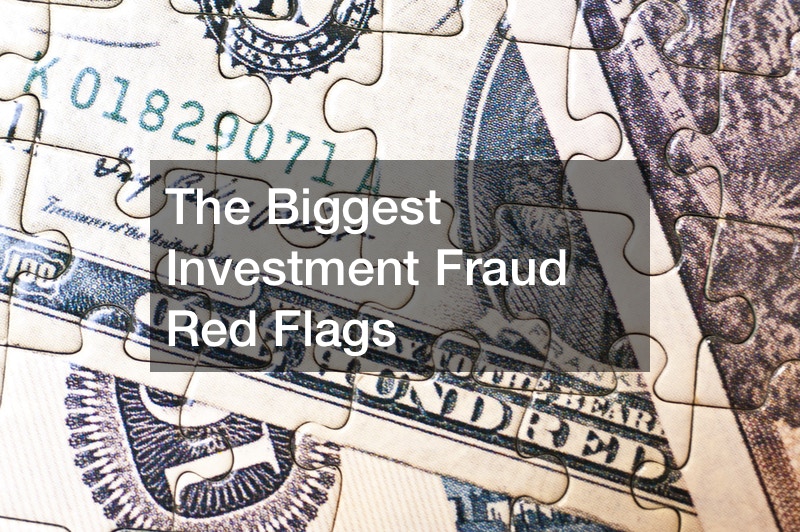
The Covid 19 pandemic has seen a significant increase in investment schemes across the world. Reports from the SEC also show an increase in the number of tips, referrals, and complaints of investment scams that have adversely affected many entrepreneurs.
Fraudsters take advantage of the pandemic to lure vulnerable individuals who fall for their investment scams. Common investment scams include Fake CD scams, Ponzi schemes, community-based financial scams, and bogus stock promotions. Here is all you need to know to help you identify and avoid such scams before it is too late.
Investment Fraud
Investment fraud is when a scammer convinces an investor to make a purchase or sale decision using false and misleading information. These illegal practices significantly violate all that fair business stands for, and the investor’s fate mostly ends in losses. The scammers use a wide range of schemes that lure their targets to non-existing, fraudulent, and risky investment opportunities. By spotting the most common scams, you can reduce the risks involved in your business and report them.
Some scammers include professional investment advisors and people you know and trust to lure their target. These schemes are attractive as most offer low-risk or no-risk investment opportunities and allow unregistered securities. Complex strategies with guaranteed promises and constant returns with no losses are some of the biggest investment fraud red flags you need to watch out for.
Who is Most Likely to be an Investment Fraud Victim?

In 2017, AARP conducted a study to build a profile of individuals who are most likely to be victims of investment fraud. They asked questions to over 8,000 confirmed victims of investment fraud about their mindset, demographics, and behavior. Here are some qualities the researchers identified of individuals who are at high risk of becoming victims:
- Male
- Conservative
- Prefer unregulated investment
- Prefers making trades over the internet or phone to distant sellers
- Individuals who see wealth to measure success
If you find any of these qualities in your personality, it would be wise to keep alert whenever an unexpected, promising investment opportunity arrives in your inbox. You can seek professional advice and assistance from wealth management services to ensure that the project is valid. Educate those close to you on these qualities and the biggest investment fraud red flags to help maintain their wealth and engage in legal practices.
Common Types of Investment Fraud

There exist multiple investment fraud schemes that scammers use to lure and defraud investors. A local survey involving state securities regulators was adequate in helping to identify the most common scenarios.
Promissory Notes
The promise of high-interest promissory notes is one of the most common schemes fraudsters use to scam investors across the world. Those living on a fixed income and seniors are most susceptible to this scheme, primarily because of the low-interest-rate environment.
It is a written promise to repay or pay a specific amount of money upon demand or at a stated future time that either pays interest at the time of maturity or during a period before the note’s maturity. Some companies sell their promissory notes to specific institutional investors while trying to raise capital. For companies to offer and sell their messages to retail investors, they will need to register with their respective states or qualify for exemption from securities registration.
Promissory notes from legitimate issuers provide an acceptable level of risk for the investment returns. Be on the lookout for promissory notes from non-existing companies which promise high returns at little risk as they feature in the biggest investment fraud red flags. Visit a bankruptcy law office before making the investment decision for financial and investment advice.
Ponzi Schemes
Pyramid schemes are another name used to refer to Ponzi schemes. The name is derived from Charles Ponzi, the 1920 swindler, and it involves scammers paying off early investors with funds from subsequent investors. In Charles’s case, he promised 40% returns from profits on international postal reply coupons to investors and made away with around $10 million.
One discerning characteristic of Ponzi schemes is that the concerned investment claims are entirely fictional. There is no money to pay out the promised dividends and still reimburse the cashing out investors, which is how investors’ money gets swindled. The scam is bound to come to light when the fraudster fails to pay the investors.
A pyramid scheme is a multi-level marketing strategy replica of Ponzi schemes. Here, investor’s returns are dependent on recruiting other investors to the system. Not all companies that use the multi-level marketing strategy are fraudulent, as some offer legitimate products and services to various consumers. The lack of a genuine product or underlying investment enterprise is an example of the biggest investment fraud red flags and turns this strategy into a scam.
Real Estate Investments
Fraudsters use real estate investment schemes to lure investors into earning quick money, and most individuals fall for it every time. Aggressively marketed real estate seminars are a hotspot for these schemes, and state securities regulators constantly warn investors. They sell these seminars as an alternative to traditional retirement strategies involving bonds, stocks, and mutual funds to attract even more investors.
Some popular investment pitches used to lure individuals into this scam are property flipping and hard-money lending. The latter involves procuring distressed real estate and refurbishing it, while the former requires financing projects through means other than traditional bank loan borrowing.
Some wealthy individuals and firms explicitly offer complex money lending services as they enjoy incredibly high interest loan return rates. Investors might join the hard money loaning venture because of the high-interest rate of return and overlook other potential risks. These aspects include the borrowers’ credit, time constraints, or the expected income stability from the project.
Property flipping is the other investment pitch favored by fraudsters in real estate investments. It involves investors buying a distressed property, refurbishing it, and immediately selling it for a profit. When flipping property, you can use solo funds or seek financial assistance from other investors lawfully. The property’s value or expected profit potential might be misinterpreted in the contract by the scammer to facilitate their scheme.
Cryptocurrency-Related Investments
Every investor is aware of the investment potential cryptocurrencies hold in our modern society. Bitcoin was the first virtual coin to hit the mainstream as its value skyrocketed in 2017. While there are numerous success stories of crypto millionaires, there is also an alarming existence of a few who bet big and lost.
Promoters and retailers of these services can quickly flee with your investment as the products do not correspond entirely to the existing state regulatory framework. Consult with a bankruptcy law office before pouncing onto any crypto investment opportunity that comes your way. Remember that these virtual coins and other related products may act as public fronts for most frauds and Ponzi schemes. Investing in crypto is extremely risky, and every investor should be aware of the high risk of loss concerned.
How to Avoid Investment Fraud?

One practical way of avoiding investment fraud is by asking questions. Fraudsters rely on the fact that the investor does not investigate the investment opportunity before investing. By asking numerous questions and doing your investigation for clarification, you may fend them off. Ask as many questions as possible even if you invest in dumpsters, as fraudsters have zero motive to set you straight.
Research Before Investing
Thorough research on the company’s products is necessary before making the investment decision. Investors need to understand that relying only on unsolicited emails, company news releases, and message board postings is not enough for one to draw their conclusion. Try and understand the business’s role in the market and the services and products offered before investing. The company’s financial statements can also be important when deciding and are found on the EDGAR filing system, through the SEC.
Know the Salesperson
While researching the company and its products, consider knowing more about the person selling the investment to you by reaching out to employment services. Researching whether he is licensed to operate in your state or whether their company has had recent altercations with other investors can be helpful. Online databases of SEC and FINRA also provide a disciplinary history of advisers and brokers for free; you can use them for your advantage.
Be Prudent with Unsolicited Offers
One of the biggest investment fraud red flags is unsolicited offers coming from unfamiliar sources. Be wary of these kinds of pitches, especially when no financial information is available on independent sources; chances are high it might be a pump and dump scheme. Also, take caution of off-shore investment recommendations as if anything goes wrong, it may be challenging to locate the money or even find out what happened.
Watch Out for These Red Flags
Here are some of the biggest investment fraud red flags to help you stay alert and avoid getting caught up in these scams.
Guarantees
Any individual who guarantees the performance of a specific investment should be seen as a suspect. It is not that guarantees are not correct, but every opportunity holds a certain degree of risk.
Overly Consistent Returns
Investments providing remarkable steady returns throughout should raise your attention. It also applies to projects whose returns consistently grow every month without considering the current market conditions. A reasonable investment opportunity should experience high and low seasons once in a while, even in custom t-shirt branding.
Complex Strategies
Profitable and valuable investment projects must not involve complex strategies. Individuals associating extraordinary success with a complex approach should be considered among the biggest investment fraud red flags. Systems using a mobile office are an ideal example of complex strategies in investment projects.
A legitimate salesperson should bring the investor to understand what the opportunity involves before agreeing. It includes how it will make money and the risks involved in venturing into the project.
Missing Documentation
Missing documentation deserves a spot in our list of the biggest investment fraud red flags. You are free to conclude that the seller is selling unregistered securities if some documentation is missing when making the sale.
A Pushy Salesperson
A reputable salesperson should not pressure you to make hasty investment decisions. Only fraudsters and cons will try and persuade you to agree without critical thinking to avoid you uncovering their plot. Steer clear of these individuals as such pressuring is inappropriate when making critical financial decisions.
Unregistered Products
Most scams involve selling unregistered products to uninformed consumers. Investors must be wary of this aspect as it is among the biggest investment fraud red flags, and you should avoid such investments. Fraudsters take advantage of fictitious services like wholesale printing to make an ideal scheme.
What to Do If You Think You’re A Victim of Investment Fraud

Do you think you’re a victim of investment fraud or just realized you were scammed? This section holds a few steps you should take after discovering fraud. The sooner you implement them, the better.
Stop Paying Any More Money
The first step to take once you discover fraud is to stop paying any more money to the system. Some scam systems are good at persuading investors to continue depositing funds even after they become wary of suspicious activities. They can also use a recovery fraud approach to con you off your remaining wealth by requesting an upfront fee to recover your swindled funds.
Gather All Necessary Information and Documents
Developing a timeline while the events are still fresh in your consciousness is a good idea. Include documents and information relevant to the incident, and provide them to the professionals for further investigation. Information like the names used by the fraudsters, website addresses, social media handles, and phone numbers can help track these cons.
Protect Your Accounts
If there is a chance the fraudsters might have your account details, protect them against identity theft by blocking access. You can contact your card issuer to report the fraud if you used your credit card to make payments to the scam. Also, change your logins and passwords for additional security, and inform your securities attorneys for further advice.
Report to Regulators
Reporting your investment fraud case is the final step to take after discovering you have been scammed. Your lawyers should walk you through which bodies you need to register the case and guide you through all the necessary formalities and notary services. Report to as many agencies as possible to increase your chances of benefiting.
Protecting yourself against investment fraud is a skill every investor should sharpen. This article holds information that will bring you a step closer to complete immunity against these schemes that appear to be on the rise, especially during this pandemic. You can educate your friends and close ones on the biggest investment fraud red flags to protect them from falling for these traps.



